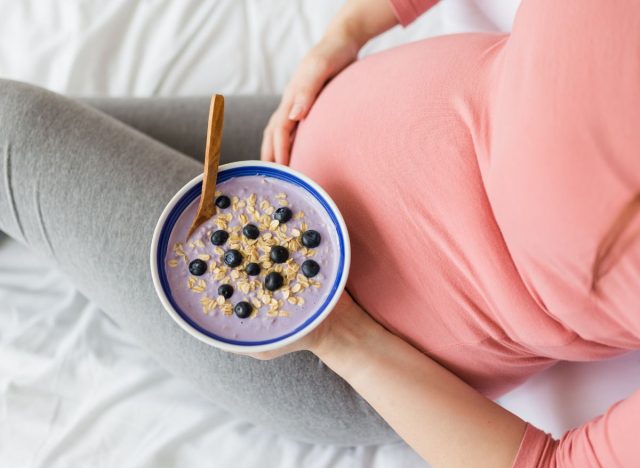7 Signs You're Not Getting Enough Protein Every Day

These days everyone is talking about getting enough protein. There are tons of people on social media documenting their quest to hit their protein goals and touting the benefits of eating more protein. But what are the actual signs that you're not getting enough of this macronutrient?
Amy Goodson MS, RD, LD, CSSD, a registered dietitian and consultant in the Dallas-Fort Worth area with an emphasis in overall health, wellness and sports nutrition says that while many people do meet their minimum protein needs (RDA – Recommended Dietary Allowance), most people can benefit from a higher protein diet. "Certain groups like older adults, athletes, those recovering from illness or injury and people trying to lose weight definitely have higher protein needs," she says. Goodson explains that protein needs vary based on activity level, age, body weight and health goals, and not getting enough can impact how your body functions and feels. Read on for everything you need to know, including 7 Signs You're Not Getting Enough Protein Every Day.
Protein Helps You Feel Full

Protein also plays an important role in helping people feel full. "People who consume diets higher in protein (about 30% of daily calories from protein) feel more satisfied, which may prevent mindless snacking and overeating throughout the day," she says. That means consuming less calories overall. "In addition, protein plays an important role in building muscle and fueling muscle recovery after physical activity. A balanced diet that includes high-quality protein and other nutrient rich foods is an essential component for strength and overall health."
7 Signs You May Not Be Getting Enough Protein

Here are 7 signs that you might not be getting enough protein:
1. Weakness or fatigue. A lack of protein can make you lose muscle mass, which in turn can leave you feeling weak and tired.
2. Slow recovery from exercise. Protein gives your body the amino acids it needs to rebuild. Without it, it's harder for the body to repair muscles tissue that gets damaged during exercise.
3. Thinning hair or brittle nails. When your body can't make enough proteins like keratin, the result can be ridges in your nails, thinning hair and even dry, flaky skin.
4. Frequent illness. Without enough protein, your immune system can be compromised, meaning it's harder to fight off viruses and bacteria.
5. Constant hunger. Protein makes you feel fuller so without enough of it in your diet, you may not feel satiated even after eating.
6. Slow wound healing. Your body needs protein to clot your blood, and to produce enough collagen to heal wounds. The result could be that it takes a longer time for cuts, scrapes and other injuries to get better.
7. Swelling. Swelling in your extremities (also known as edema) can be a sign of not enough protein since proteins that circulate in your blood help keep fluid from building up.
Registered dietician nutritionist Lauren Manaker, MS, RDN, LDN, CLEC, CPT, says it's important to note that these symptoms could also have other causes, so if you're concerned, it's best to consult a healthcare professional.
Start the Day With Protein/slidetitle]

If you're ready to add more protein to your diet, Goodson recommends starting the day with protein. "Think Greek yogurt parfaits with berries and whole grain granola, eggs and oatmeal, or a protein smoothie made with milk, yogurt and fruit," she says. "For snacks, go for string cheese, roasted edamame or beef jerky. And at meals, aim to fill a quarter of your plate with lean high-quality proteins like lean beef, fish, or poultry. The goal is to consume approximately 30 grams of protein at meals and at least 10 grams of protein at snacks."
How Much Protein is Best?/slidetitle]

So how much protein should you be getting each day? "A general guideline is to aim for 0.8 grams of protein per kilogram of body weight if you're an average adult with a sedentary lifestyle," says Manaker. To find your baseline, simply divide your weight in pounds by 2.2 to convert it to kilograms, then multiply by 0.8. "However, your protein needs can vary depending on factors like age, activity level and health goals," she says. "For instance, athletes, pregnant individuals, or those trying to build muscle may require more protein to support their bodies." If you're unsure about your specific needs, consulting a dietitian can provide tailored advice to match your lifestyle.









